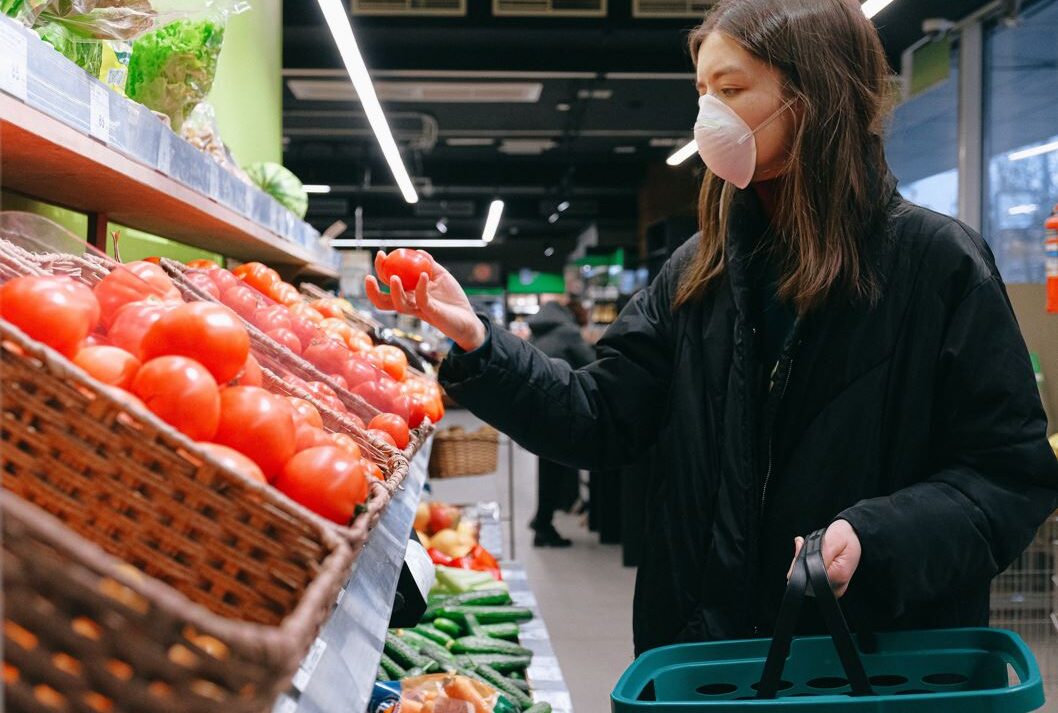How to Handle Sensitive Situations with COVID Etiquette

In the age of COVID, it’s easy to encounter a variety of situations—such as someone not wearing a mask nearby you—that you may be unsure how to handle. Elaine Swann, founder of the Swann School of Protocol, recently talked to NPR about how to tackle some common COVID-19 conundrums. Here’s her helpful advice, sourced from an NPR article, re: how to handle various sensitive situations with COVID-19 etiquette:
How do I tell somebody—especially a stranger—to step back because that person is just too close to me?
According to NPR’s article, Swann said this is the #1 question people ask her. Your first inclination is to yell out, "Step back!" she said, but that reaction is more likely to exacerbate the problem. Instead, Swann told NPR, try to use words like "we" and "us" in the request. For example, "Let's just put a little bit of space in between each other while we're waiting in line." This shows mutual consideration, such as you're concerned about how your behavior is affecting their health, and hope they are worried about your safety too. If you ask in a kind manner, people are likely to do as you ask, said Swann in NPR’s article. More often than not, people want to be respectful of others. But if you start lecturing or take on an abrasive tone, they are not as likely to comply. What if I ask a person to keep their distance or put on their mask and they don’t? "Then, do what you can to protect yourself,” Swann told NPR. “Turn your face away from that person, step over a few feet, walk in a different direction.”
It makes me upset when I see people not following the COVID guidelines. Can I intervene?
Swann told NPR, "If their behavior is not affecting you, let it go," she said. "Folks are getting into these arguments and kerfuffles because they're trying to get folks to comply with the pandemic guidelines. Stop trying to do that if the person does not want to comply. You have to let crazy be crazy and leave them alone. "Per the NPR article, Swann said the only time you should speak up is if it's directly impacting your own safety. At that point, try using some of the "we" and "us" language in her aforementioned suggestion.
What if I'm at a socially distanced outdoor gathering and, after a few hours, people start to bend the rules a little bit?
Try using the "we" and "us" language if it's happening with an individual, Swann told NPR. Say to the person, "Let's make sure we stay in our little sections over here." But if it's happening party wide, alert the host, Swann told NPR. The person hosting has the authority to enforce the pandemic guidelines. Swann suggested saying, "I noticed that people are starting to get relaxed with the guidelines. I thought I'd bring that to your attention. "If nothing comes of it, Swann suggests wrapping up your stay, per NPR. Just say, 'You know what, I'm gonna head on home now. I had a great time…’ Resist the urge to get on your soapbox.”
A friend invited me to hang out. How do I know whether it's safe to do so?
We might not be on the same page with the pandemic protocols. Don't make assumptions regarding how people are following the guidelines, Swann told NPR in the article. Some people feel safer at home, while others proceed as if the virus was nonexistent. It’s best to ask a few questions in advance, she said in the article. For example: "I wear a face covering when I'm around others. How do you feel about wearing face coverings? Is that something you're doing? Is this going to be a social distancing affair?" Per the NPR article, then listen to what they say. "Take a moment to step back and ask yourself whether it is something you feel comfortable with," Swann told NPR. "If not, say, 'Thank you so much for the invitation, but I won't be able to make it.'" Don't push them to change their plans to gel with your comfort level, she added.
What do I do with my mask at a socially distanced meal?
While you're eating, take the mask off completely, Swann told NPR. “Don't have it hanging from one ear." It doesn't make sense to try to wear it at the table while you’re eating, she told NPR. That being said, Swan told NPR, people shouldn’t put their used mask on the table. Aside from the germs, it's a major etiquette faux pas. Swann said that people should "place it in your bag, purse or in your pocket.” Remember to put your mask on again when your server is around, she told NPR, to keep them safe too.
Click here for a printable mini book with some of Swann’s advice.